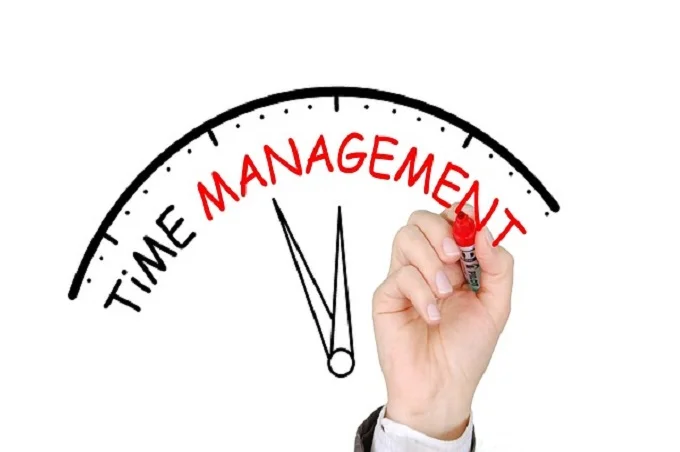Signs you’re not time-efficient

One of our most precious resources is time, yet it is also finite. Many people don’t even recognize how wastefully they spend their hours and minutes. These signals suggest you should reevaluate your routines and develop time management skills.
8 signs you’re not time-efficient
1. You rarely finish what you start

One sign of inefficient time use is a chronic inability to complete started tasks. You may rush headlong into a new project with enthusiasm and high hopes, but as you move forward, obstacles arise, minor distractions occur, and spontaneous tasks gradually replace the original plans. You find yourself with many unfinished businesses, each requiring your participation.
Your motivation is weakened, and a persistent sense of disorder is created. Because of your poor time management skills, what you should be able to do in a week often takes several months to complete or becomes unimportant. You should, therefore, prioritize your tasks and concentrate on completing them according to a strategy.
2. You are used to sacrificing your interests
Another unsettling indicator is the tendency to prioritize other people’s needs before your own. While this could appear to be a gesture of kindness at first, the long-term effects of this action are sometimes very detrimental. Giving up your needs and wants for the benefit of others causes you to progressively lose sight of your objectives, which wears you out and causes emotional burnout.
You reach a point where you can no longer fit in all of your interests and responsibilities, and life consists of people’s demands. Establish healthy limits and save time for the things that make you happy and help you become more aware of who you are. This is the only way you can maintain your enjoyment of life and never lose who you are at your finest.
3. You work hard, yet you see no results

Many people think a person’s ability to manage their time well increases with the number of chores they finish each day. But this is a widespread misperception. What counts are the goals attained and the importance of the work accomplished, not the number of tasks finished.
You clearly lack time management skills if you work nonstop every day without seeing any noticeable improvements. You’re wasting your energy on unimportant things that won’t help you get what you desire. Take the practice of doing things that can be assigned to others, checking all emails and messages at once, or taking charge of other people. Rather, you ought to concentrate on the truly significant priorities.
4. You feel a lot of stress when planning
For some, planning itself becomes a cause of stress. It may appear because you are not coping with the volume of tasks or a lack of certainty about your goals. When planning makes you feel anxious, it interferes with the rational allocation of time and leads to mistakes.
Planning should help you gain control of your time and not lead to even more chaos. If you feel overwhelmed, try to simplify the planning process. Break down your tasks into smaller and more manageable ones, set reasonable deadlines, be bold, and reconsider your plans if they are unrealistic.
5. You are rushing from task to task

Jumping from one task to another not only destroys your productivity but also causes you to feel dissatisfied. Imagine that you started writing an important report but suddenly remembered that you must answer several emails. While I was answering emails, I noticed that I had not completed work on the presentation.
As a result, neither the report, the letter, nor the presentation were completed properly. This state is known as multitasking, but it is just filling your time with various tasks that are rarely achieved. The solution to this problem is simple but requires discipline: you must devote a certain amount of time to each task and not allow yourself to be distracted in the work process.
6. You’re too busy to relax and grow

Perhaps you are a workaholic and think working without a break is the way to success. But in reality, a chronic lack of rest and time for self-development can lead to burnout and reduced efficiency. Everyone needs time for activities that bring joy and peace. Its deficiency can negatively affect your physical and mental health and deteriorate productivity at work. The optimal use of time involves effective work and a harmonious combination of rest and personal development.
7. You are constantly late
Missed appointments, being late for work or school, and complaints from others about your lack of punctuality suggest you do not know how to organize your time. Waiting in queues, traffic jams, and unforeseen circumstances make life unpredictable, but regular delays often indicate a deeper problem.
Learning how to plan your day is important. Consider possible delays and leave extra minutes for circumstances you do not control. Remember that punctuality respects others and helps you feel more confident and calm.
8. You feel emotional burnout

Emotional burnout is a state of chronic fatigue caused by prolonged stress and task overload. It can lead to a complete loss of motivation and interest in what you do, whether you work without breaks, take on too many obligations, or forget about the importance of rest.
Each such action slowly but surely leads you to emotional exhaustion. Clear your schedule of unnecessary things, learn to say “no” to those tasks that are not on the priority list, and find time for activities that bring you joy and help you relax. Remember that productivity and efficiency cannot exist without a work-life balance. You can allocate your time more effectively by caring for your emotional state.




